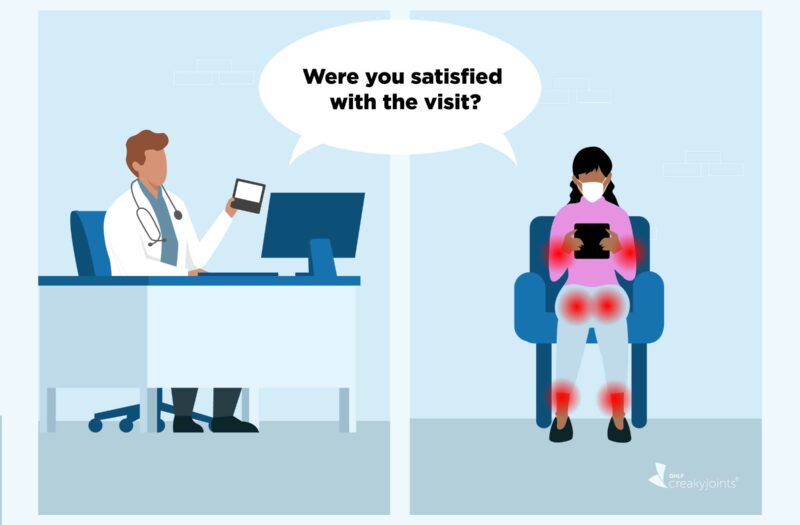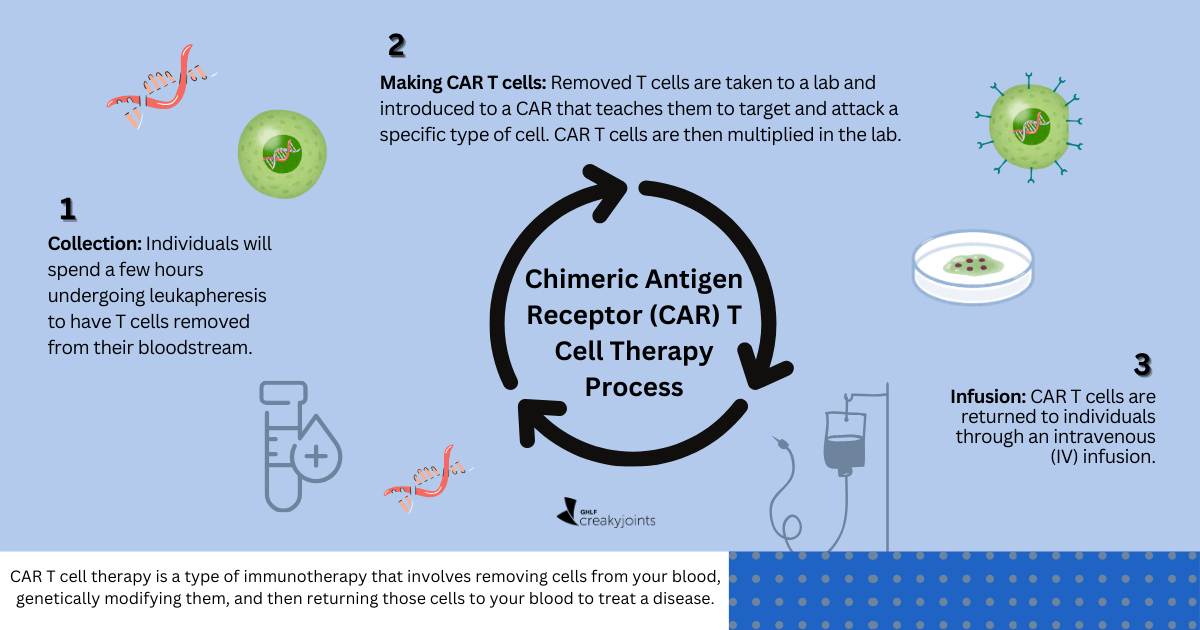Key Takeaways
- Language barriers can make it difficult for rheumatology patients to obtain good care.
- Even if you and your provider technically speak the same language, such as English or Spanish, communication glitches are still possible.
- A Spanish-language questionnaire showed that rheumatoid arthritis patients and their Spanish-speaking providers were agreeable, sometimes to a fault, of what had transpired during a checkup.
Have you ever left a doctor’s office feeling rushed, confused, or otherwise frustrated? Maybe you felt like your provider didn’t listen carefully or that that whatever concerns you expressed were ignored or dismissed. Even worse: What if your doctor left the same appointment and thought that everything went really smoothly?
Good doctor-patient communication is key to good care. Without it, shared decision-making can’t happen, and patients, in turn, are less likely to stick with prescribed treatment plans and feel satisfied with the quality of their treatment.
“It sounds basic, but when you have a chronic condition the relationship you establish with your physician is essential,” says Oscar Soto-Raíces, MD, Medical Director of Mindful Rheumatix and Medical Research Group in San Juan, Puerto Rico. “You need to make the most of the minutes you have with your physician.”
While many factors can interfere with clear communication, simply speaking the same language is a big one, says Dr. Soto-Raíces, who has worked in the U.S. as well as in in Puerto Rico. “When there’s a language barrier, not being able to communicate well might put you at a disadvantage because you’re not able to relay how much pain you have, how much you’ve improved, or what you need,” he says.
Finding a health care provider who speaks your native tongue is often beneficial, he says, but it might not be sufficient. For instance, your doctor might know how to speak Spanish but not use the same dialect that you do or not have a full understanding of your cultural background.
Dr. Soto-Raíces is interested in exploring these types of nuances, and he’s working in conjunction with the Global Healthy Living Foundation Medical Affairs and Hispanic Outreach group to do just that. Step one in their work has entailed simply assessing whether patients and their providers are in sync in terms of how well they think they’re communicating.
They conducted a study, “Do Patient and Physician Assessments of a Health Care Visit Match for Hispanic/Latinx Patients with Rheumatoid Arthritis in the United States and Puerto Rico?,” that focused on Hispanic/Latinx rheumatology patients in the U.S. and Puerto Rico. The survey was made available on tablet devices in four rheumatology clinics in the U.S. and Puerto Rico. Both patients and providers were asked to complete a “patient-provider questionnaire” after a visit so that the researchers could assess whether both parties had a similar impression of the experience.
Patients were asked questions such as:
- Were you able to relay your expectations?
- Did you get enough time to ask questions?
- Do you think the doctor understood everything you said?
- Were you satisfied with the visit?
The physicians were asked a variation on the same questions, such as “Do you think your patient left the visit satisfied?”
Across 114 clinical visits, 96.75 percent of possible answers were recorded and were almost invariably positive on items related to goal setting and relationships, with scores of 5 (strongly agree; 88 percent), 4 (agree; 12 percent), or 3 (neither agree nor disagree; 0.09 percent). Physicians responded with 4 (agree) more often than patients (18 percent vs 6 percent of responses). Within these paired answers, 80.67 percent were concordant.
“Given the high levels of agreement between patients and physicians, which researchers found problematic for several reasons, we suggest that the PPQ may not be a good proxy measure for patient-reported outcomes,” said Daniel Hernandez, MD, Director of Medical Affairs and Hispanic Outreach for the Global Healthy Living Foundation. “These results provide valuable information about how cultural norms within the Hispanic community in the U.S. and Puerto Rico, such as a social-desirability bias toward positive statements about physician-patient interactions, require us to dig deeper to create measures that work specifically for this patient population.”
Research measuring the effectiveness of Spanish language, already in progress at CreakyJoints Español, found that culturally relevant RA education materials for newly diagnosed patients may help to shape future tools and, ultimately, improve RA outcomes. The research presented at EULAR and the additional in-progress research is supported by a grant from Bristol-Myers Squibb Foundation. The research will be presented at the EULAR 2022 Congress, the annual meeting of the European Alliance of Associations for Rheumatology. The conference is taking place online and in Copenhagen June 1-4.
In this particular study, all of the rheumatologists spoke Spanish. However, pre-printed educational materials and brochures are often only in English, which can present an additional barrier, says Dr. Soto-Raíces
What This Means for You
Don’t be afraid to speak up. The more you speak up, the better off your care will be.
If possible, choose a health care provider who speaks the language you’re most comfortable speaking or ask for a translator and don’t be afraid of being very open about what you are experiencing (physical, emotional, and mental) and what you’ve felt prior to the appointment. Also ask for educational materials, such as brochures or videos, in your native language.
It’s also important to keep in mind that even if you and your provider speak the same language, you may not always understand the nuances of what the other person is saying. Don’t be afraid to speak up if you aren’t sure about something. Remember, the more you speak up, the better off your care will be.
Be Part of Research with ArthritisPower
Join CreakyJoints’ patient-centered research registry and participate in voluntary studies about managing arthritis. Learn more and sign up here.






